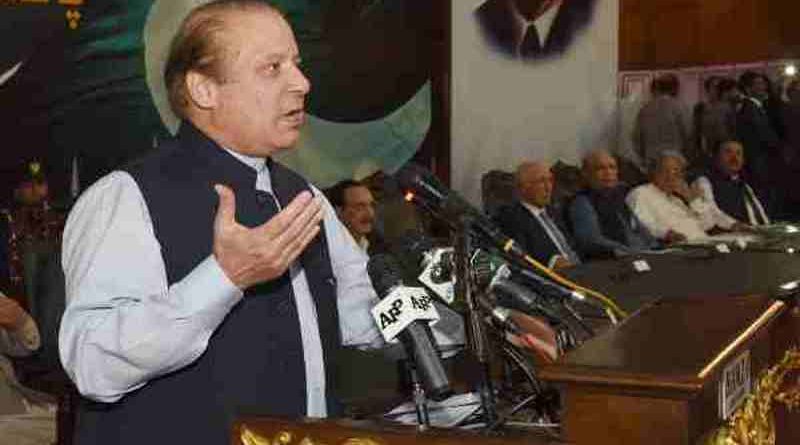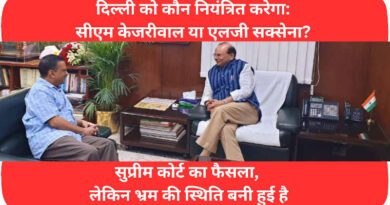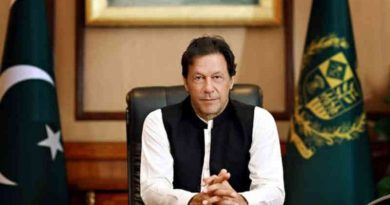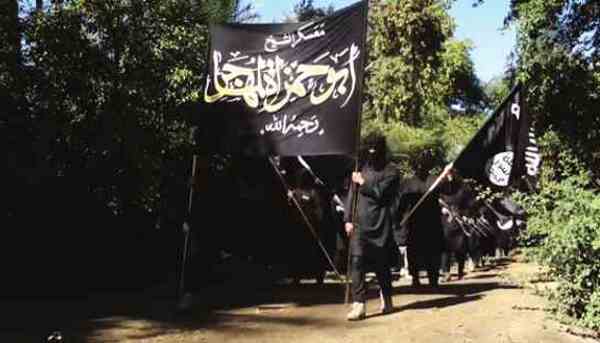Corruption Case: Nawaz Sharif Asked to Appear in Pakistan Court
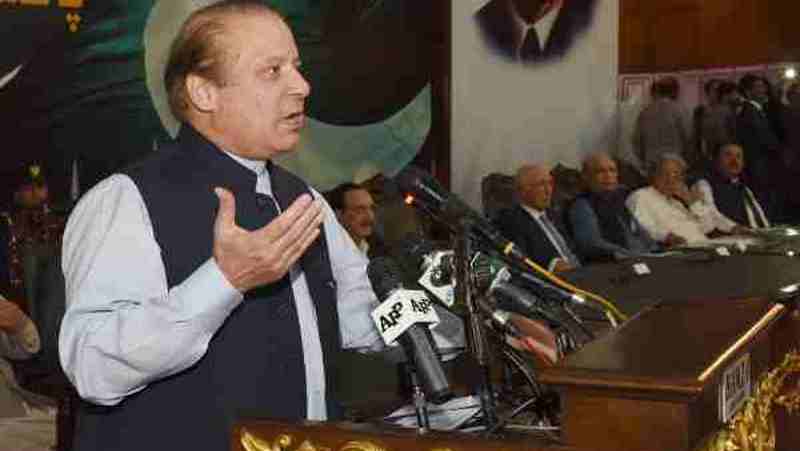
By RMN News Service
A Pakistani court has ordered former Pakistan prime minister (PM) Nawaz Sharif to appear before it by November 24 to avoid being declared a proclaimed offender. According to reports, the court order has come when Sharif allegedly refused to receive the non-bailable arrest warrants at his residence in London.
Despite efforts by the law-enforcement agencies, the warrant issued by the Islamabad High Court (IHC) on September 15, could not be served.
According to reports, irked by the attitude of Sharif’s representatives at his residence in London, the high court on October 7 ordered that advertisements be issued in newspapers to summon him. The government informed the court that Rs. 60,000 were paid for advertisement in the nominated newspapers.
The IHC Registrar issued a written order on October 10 about the proceedings on the appeal by Nawaz Sharif in Al-Azizia and Avenfield graft cases. The court has asked Sharif to appear before it by November 24 otherwise he would be declared as a proclaimed offender. The proclamation may result in the confiscation of his properties as well as passport.
A Pakistan anti-corruption court has already ordered the seizure of Sharif’s assets for his failure to appear in the Toshakhana graft case. The court order was issued when he was declared an absconder in the case for allegedly causing a huge loss to the national exchequer.
Earlier, on September 9, the anti-corruption court had indicted former president Asif Ali Zardari and a former prime minister Yusuf Raza Gillani, while declaring Sharif an absconder in the case.
According to reports, the Islamabad-based accountability court was hearing the case filed by the National Accountability Bureau (NAB), which is Pakistan’s top anti-corruption authority.
In its report, the NAB has submitted the details of Pakistan Muslim League-Nawaz (PML-N) chief’s movable and immovable properties. The reports add that the accountability Judge Asghar Ali ordered the authorities to freeze Sharif’s national and international bank accounts and seize his 206 acres of agricultural land in Lahore and 12.75 acres in Sheikhupura, as well as his house in Murree in Punjab province.
It is alleged that Sharif, 70, had also received two tractors and cars from the Toshakhana (state gift depository) after paying 15 per cent of the price. These vehicles are also included in the assets that the court has ordered to seize.
The Toshakhana graft case is about the alleged relaxation of rules by Gilani for the benefit of Zardari and Sharif to buy vehicles gifted by foreign countries.
Sharif is accused of obtaining luxury cars from the treasury house by paying just 15 per cent of the price of these vehicles. Similarly, Zardari and Gilani, are also accused of receiving luxury vehicles and gifts from the treasure house.
According to reports, the court had issued non-bailable arrest warrant against Sharif in June and subsequently directed the Foreign Office to execute the arrest warrants through the Pakistan High Commission in London, where Sharif had gone under the pretext of getting treatment for health complications.
He had gone abroad after securing bail for medical treatment in two other cases of financial misappropriation: Chaudhry Sugar Mills case and the Al Azizia case.
Meanwhile, Pakistan prime minister Imran Khan has urged authorities to bring back Sharif from London and to ensure that the former prime minister faces the corruption cases pending against him in various Pakistani courts.
Sharif, his daughter Maryam, and son-in-law Muhammad Safdar were also convicted in the Avenfield properties case on July 6, 2018. Sharif was sentenced to seven years in the Al-Azizia Steel Mills case in December 2018. But he was granted bail and allowed to go to London for medical treatment.
It is believed that Sharif had gone to London only to avoid prosecution in Pakistan, as it is alleged that there are photos circulating online that show him strolling and enjoying himself in London streets.
Although the prime minister of India Narendra Modi has also been facing serious allegation of corruption and misappropriation of funds in multiple cases such as the Rafale deal and PM CARES Fund, he has not been prosecuted.
Modi avoids prosecution because the judiciary in India is weak and incompetent, and the anti-corruption departments such as the Lokpal, Central Vigilance Commission (CVC), and others only exist as toothless, ineffective outfits that cannot weed out corruption.

